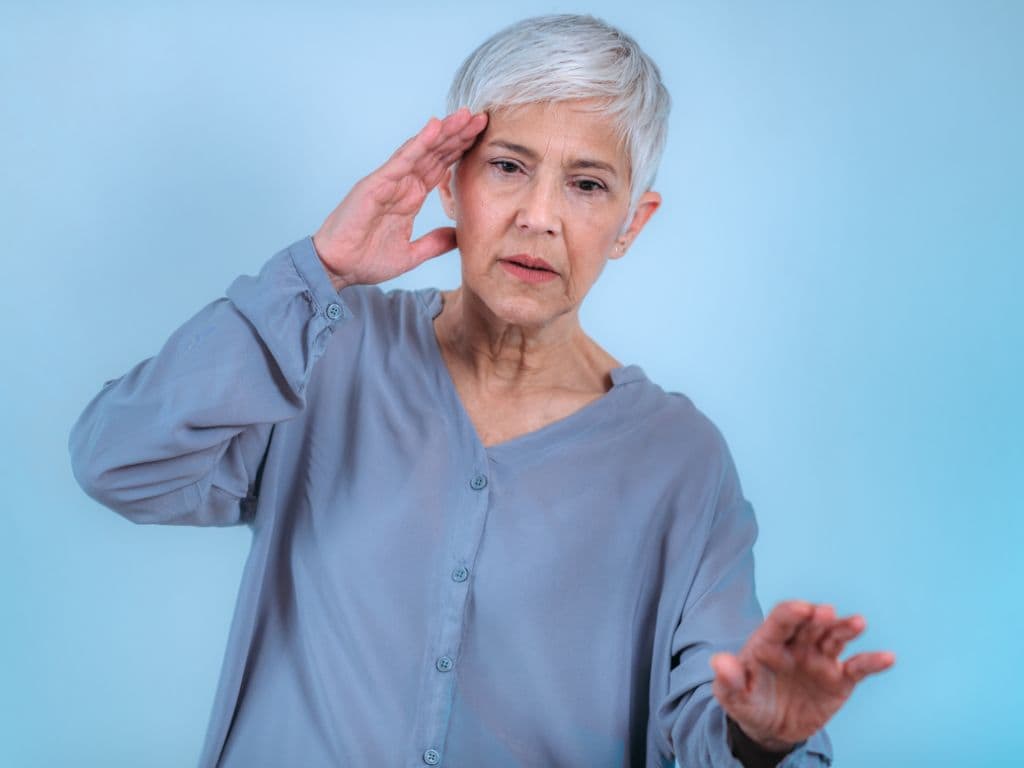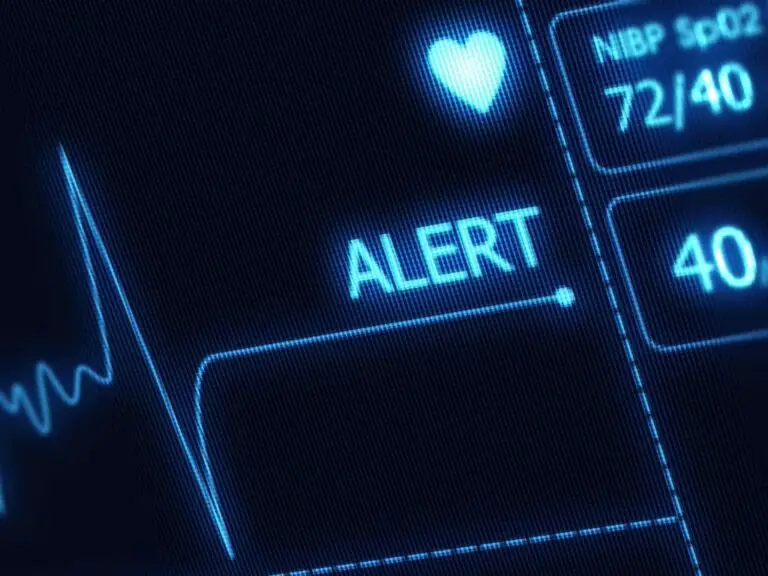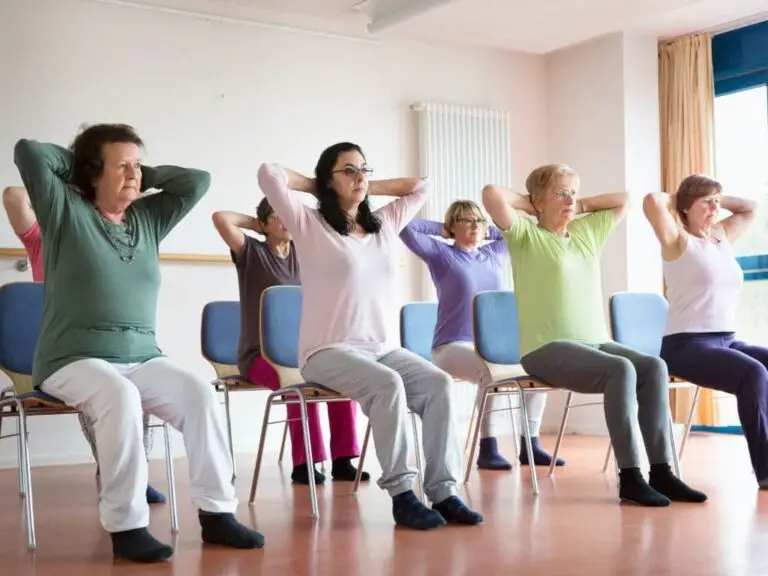Causes of Dizziness in the Elderly: Understanding and Managing Balance Issues
Feeling dizzy or lightheaded is a common complaint among older adults. Dizziness refers to a sense of spinning, swaying, or loss of balance. It can make you feel woozy, faint, nauseated, or like the room is spinning.
Vertigo is a specific type of dizziness where you feel like you or your surroundings are moving when there is no actual movement. Vertigo can cause the sudden sensation that you are spinning or tilting.
Dizziness has many possible causes, ranging from mild to severe. Understanding the root cause is key to finding the right treatment.

Common Causes of Dizziness in the Elderly
There are a variety of reasons why seniors may experience dizziness.
The most common cause of dizziness in the elderly is age-related changes in the body, specifically within the systems involved in balance. This includes deterioration of the inner ear’s fluid and crystals that sense head position and movement, and vision decline that affects balance signal interpretation. Orthostatic hypotension, a sudden drop in blood pressure when standing up quickly, also contributes to dizziness.
The most common causes of dizziness in the elderly are listed below.
1. Age-Related Changes in the Body
As we age, the systems involved in balance often deteriorate. The inner ear contains fluid and crystals that sense head position and movement. With aging, this system can become less accurate. Vision also declines, making it harder for the brain to interpret balance signals.
Arteries stiffen over time, which can reduce blood flow to the brain when standing up quickly. Seniors may feel momentarily dizzy when their blood pressure drops, a condition called orthostatic hypotension.
2. Medication Side Effects
Many common senior medications can cause dizziness as a side effect. These include blood pressure medications, diuretics, sedatives, and psyche meds. Reviewing medications with a doctor can identify any that could be contributing.
3. Dehydration and Electrolyte Imbalances
Mild dehydration is common in seniors and can cause dizziness when standing up. Certain electrolytes like sodium, potassium, calcium, and magnesium help regulate fluid balance. Deficiencies, often due to medications like diuretics, can trigger dizziness.
4. Cardiovascular Diseases
Heart and blood vessel diseases reduce blood flow to the brain. Blocked arteries, heart attack, stroke, and arrhythmias like atrial fibrillation can all cause dizziness.
5. Neurological Disorders
Dizziness can result from diseases affecting the nervous system. Vestibular neuritis, an infection of the inner ear nerves, causes intense vertigo. Labyrinthitis, an inner ear infection, inflames the inner ear structures. Disorders like Parkinson’s disease and multiple sclerosis damage parts of the brain and nerves involved in balance.
6. Inner Ear Problems (Vertigo)
The inner ear houses the semicircular canals filled with fluid. These sense head movements. Issues here are a common cause of vertigo in seniors.
Benign paroxysmal positional vertigo (BPPV) occurs when loose crystals in the inner ear canal drift into the semicircular canals, causing a sense of spinning with position changes.
Meniere’s disease causes buildup of inner ear fluid, triggering vertigo along with ringing ears and hearing loss.
7. Anxiety and Stress
Anxiety doesn’t directly affect balance but can cause dizziness along with other symptoms like rapid heartbeat, sweating, hyperventilation, and nausea. Managing stress and practicing relaxation techniques can help.
8. Low Blood Sugar Levels (Hypoglycemia)
In people with diabetes, low blood sugar can trigger dizziness. Checking glucose levels and adjusting medications can prevent hypoglycemia and dizzy spells.
How to Diagnose Dizziness in the Elderly?
Doctors use a combination of assessments and testing to determine the cause of dizziness, including:
- Medical history – Important clues come from associated symptoms like nausea, headache, hearing changes, or triggers like position changes. Doctors ask about medications, past illnesses, and family history.
- Physical exam – Balance testing in different positions identifies problems with the inner ear or central nervous system. Heart, neurological, and eye exams help pinpoint related medical issues.
- Blood tests – These check for anemia, electrolyte imbalances, diabetes, infections, and thyroid disorders.
- Neurological tests – Hearing and eye movement tests evaluate the inner ear. Brainwave and nerve conduction studies assess central nervous system involvement.
- Cardiac testing – Electrocardiograms and stress tests screen for heart rhythm issues and blockages.
- Imaging – CT or MRI scans help diagnose strokes, tumors, nerve damage, or brain abnormalities that affect balance.
What Are Some Treatments for Dizziness in the Elderly?
Dizziness treatment focuses on addressing the underlying cause:
1. Medications
- Medications to increase blood flow and prevent strokes in people with cardiovascular disease
- Diuretics, sodium, or fludrocortisone to manage dehydration and electrolyte levels
- Antibiotics for inner ear infections
- Meclizine or benzodiazepines to reduce dizziness and nausea
- Adjusting dosages of drugs causing side effects
2. Physical Therapy
Specific exercises improve strength and balance. Physical therapists teach compensation techniques for age-related decline in the vestibular system.
3. Lifestyle Changes
Preventing dehydration, anemia, and electrolyte depletion through diet. Avoiding triggers like busy patterns and rapid movements. Using mobility aids to prevent falls.
4. Surgery
Surgery can fix some inner ear problems, like draining fluid buildup in Meniere’s disease or repositioning crystals in BPPV. Pacemakers help control heart arrhythmias. Stents open blocked arteries.
How to Prevent Dizziness in the Elderly?
Steps to reduce dizziness risk include:
- Staying well hydrated and getting electrolytes
- Moving slowly and using support when standing
- Avoiding sudden position changes
- Doing balance exercises
- Managing chronic health conditions
- Reviewing medications with doctors
- Treating infections promptly
- Using earplugs to prevent infections when swimming or showering
- Getting vision and hearing checked annually
When Should You Seek Medical Help for Dizziness?
Consult a doctor promptly for:
- Sudden, severe dizziness
- Dizziness with headache, numbness, trouble speaking, vision issues, or loss of consciousness
- Dizziness with chest pain or palpitations
- Persistent dizziness lasting hours or days
- Dizziness causing falls or injuries
- New dizziness that interferes with daily activities
Seek emergency care for dizziness following a head injury or combined with symptoms like weakness, difficulty speaking, or one-sided numbness that indicate a stroke.
Living with Chronic Dizziness: Coping and Management
For seniors with recurrent dizziness tied to age-related decline or chronic conditions, certain adaptations can improve daily function and quality of life:
- Move slowly and pause between position changes
- Sit down as soon as feeling dizzy
- Use mobility aids like canes or walkers for added stability
- Install grab bars and rails to grip if unsteady
- Wear low-heeled shoes with good traction
- Eliminate fall hazards like loose rugs and clutter
- Improve lighting throughout the home
- Try vision or balance therapy
- Ask doctors about medication options to minimize episodes
- Consider physical therapy to build strength and balance
- Join a vestibular rehabilitation or fall prevention program
- Avoid driving or only drive familiar, short routes
- Have groceries and meals delivered when needed
- Communicate needs clearly to family, friends, and caregivers
While dizziness can really impact seniors, understanding the causes and following doctor’s orders can help minimize episodes. Seeking prompt attention for new or severe symptoms allows underlying issues to be diagnosed and treated. With some adaptations to ensure safety, most seniors can find ways to manage dizziness and continue an active, engaged life.
Frequently Asked Questions
-
What is the most common cause of dizziness in the elderly?
The most common cause of dizziness in the elderly is age-related changes in the body, specifically the deterioration of balance systems. This includes inaccuracies in the inner ear’s fluid and crystals that sense head position and movement, and declining vision which affects the brain’s interpretation of balance signals. Additionally, stiffening arteries can reduce blood flow to the brain causing dizziness.
-
Is there medication for balance problems?
Motion-sickness medication may be prescribed by your healthcare provider. This can help with vertigo, dizziness and even inner ear inflammation. Sometimes, an antibiotic may be prescribed.
-
Why can I barely walk after sitting?
Plantar fasciitis is often characterized by stiff feet after sitting or in the morning. Plantar fascia, a thick ligament that runs from your heel to the ball of the foot, is what causes stiffness in the feet. When this ligament gets inflamed, it can lead to plantar fasciitis. Plantar fasciitis can be a common condition in runners and other athletes.
-
What neurological conditions cause balance problems?
Multiple Sclerosis, Parkinson’s Disease, Cervical Spondylosis, and other neurological conditions can slowly affect the communication between your brain and your nervous system, which could lead to imbalances in your ability to balance. You can get physical therapy to manage your symptoms.
-
What is it called when you can’t walk properly?
Ataxia refers to a lack of muscle control. Ataxia is a loss of muscle control in the arms and legs. It can lead to problems walking, balance and coordination.
-
What is it called when you fart while walking?
The perfect Crop Dusting technique Although it might be rude to run and fart, there are many benefits to doing so.
-
What causes you to not be able to walk straight?
Unsteadiness, difficulty walking and standing can be caused by imbalances in gait or balance. A person might also feel vertigo or dizziness depending on what the reason is. These issues are common in adults due to musculoskeletal injury, arthritis and visual or inner-ear problems.
-
Are bananas good for dizziness?
Potassium plays a vital role in fluid regulation. Vertigo can be caused by the buildup of fluid in your inner ears. Bananas can help to reduce vertigo symptoms.
-
What medications should not be taken with B12?
Some medications may decrease vitamin B12 absorption, such as colchicine and metformin.
-
What causes dizziness in an 80 year old?
Blood pressure changes Your heart becomes less efficient at moving blood throughout your body as you get older. Your blood pressure could drop if you get up quickly. A dizziness caused by a drop in blood pressure should not last more than two minutes.






